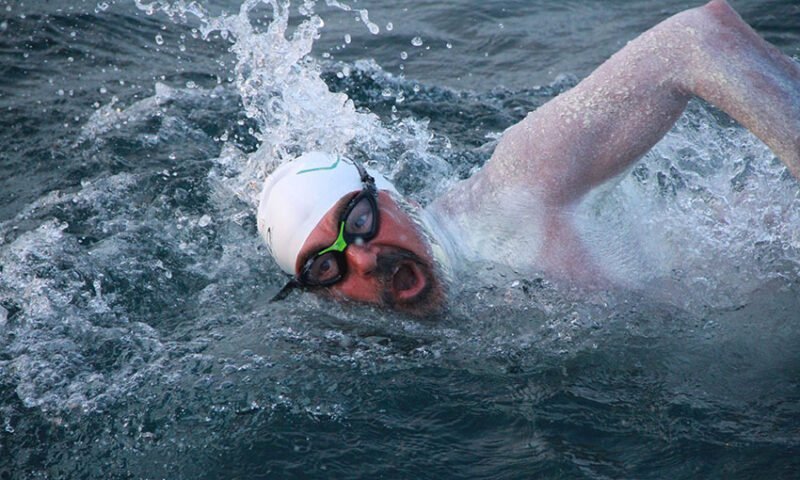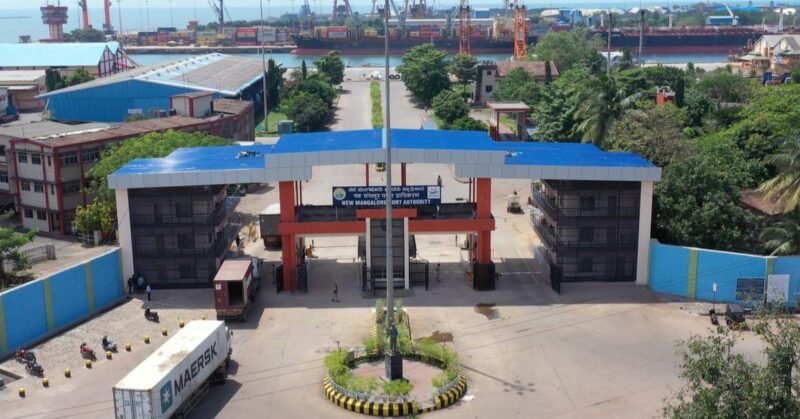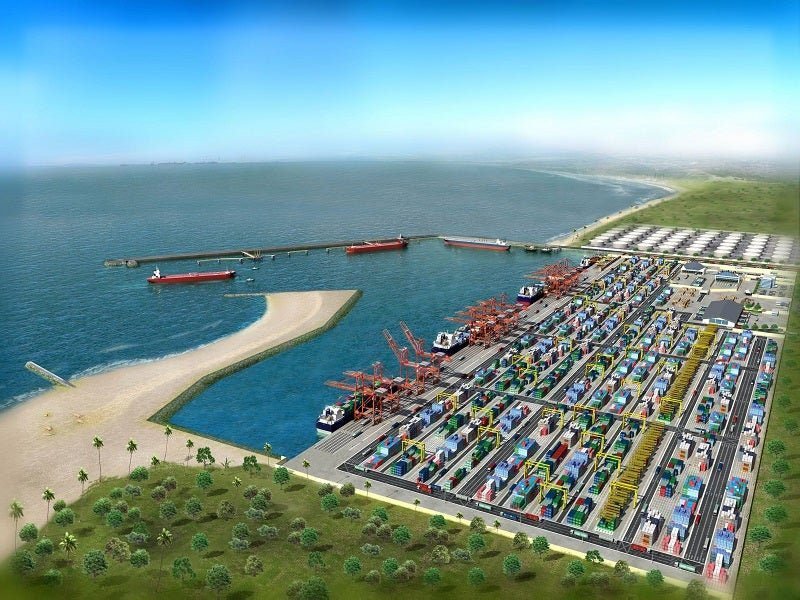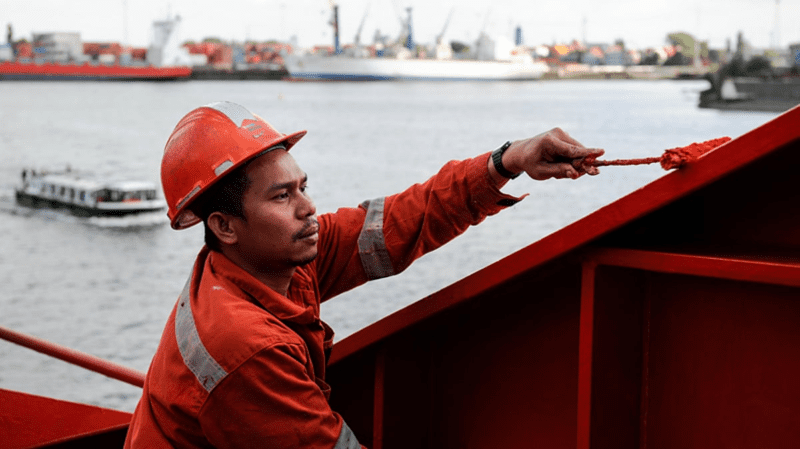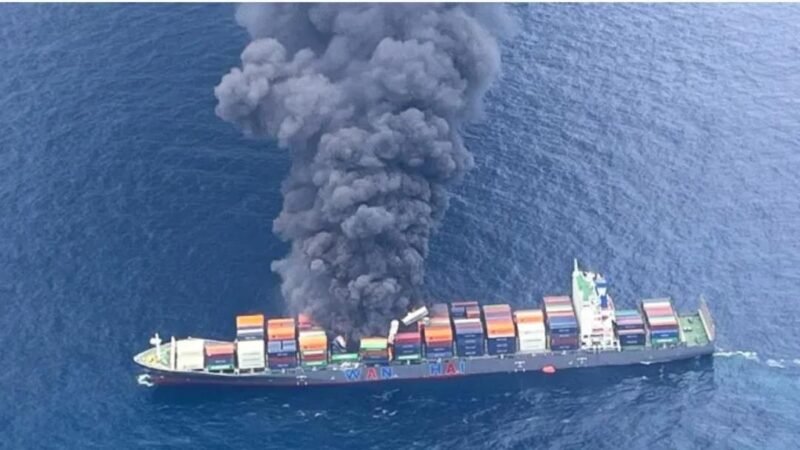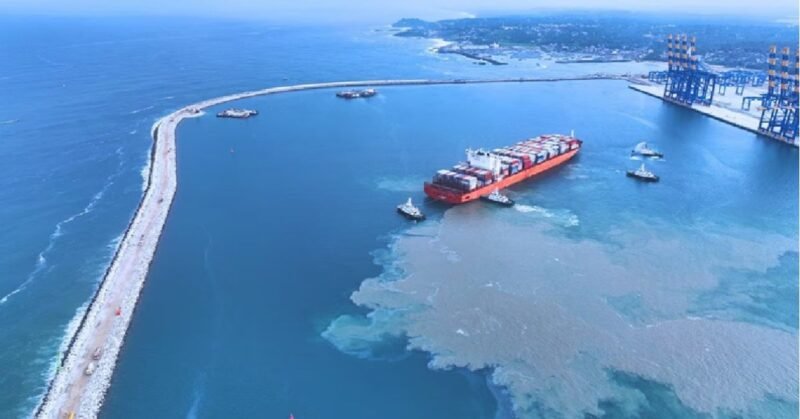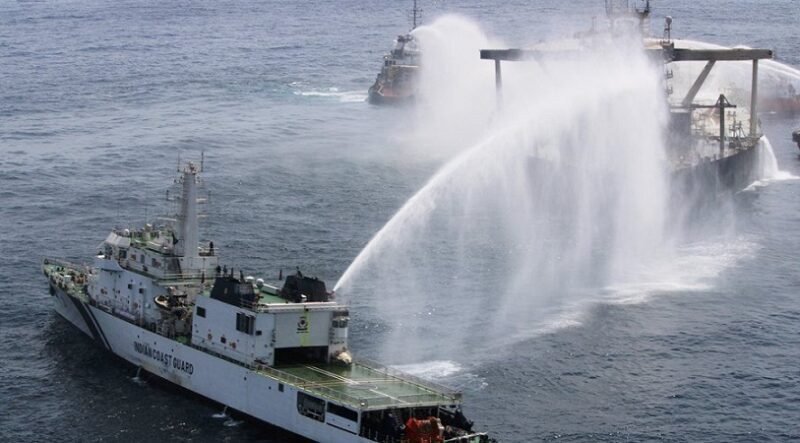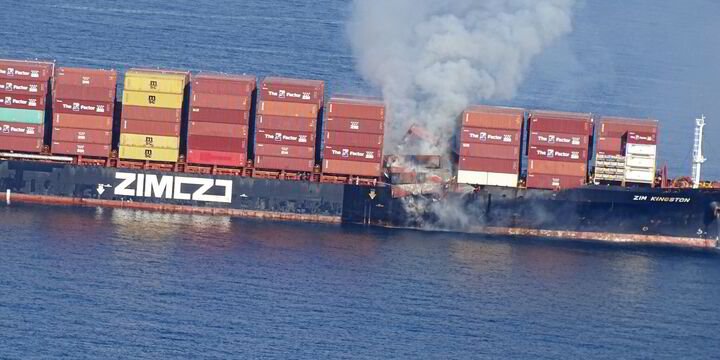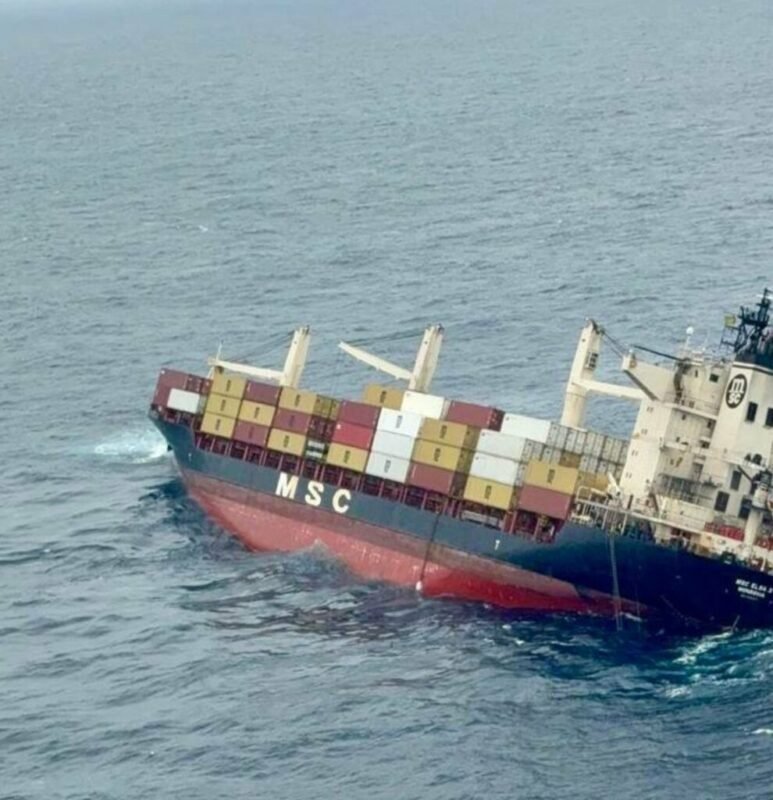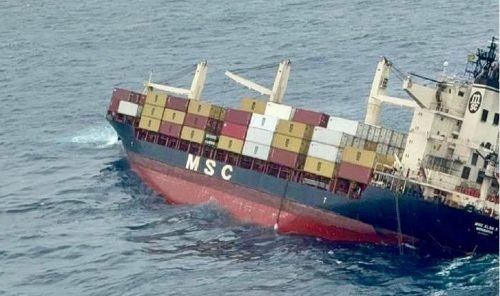Following Stories compiled in this News Digest for the week from 07 Feb 2022 to 13 Feb 2022 in descending order:
- Ports and Ministers commit to 2028 shore power deadline
- 11 sustainability-driven shipowners join Green Marine Europe
- Indian Coast Guard inducts made-in-India choppers for maritime security of west coast
- IMO Secretary-General highlights rights of Seafarers
- Thordon Bearings Unveils New Water-Lubricated Shaft
- World’s First LNG-Fueled Bulker Starts Maiden Voyage
- Mission Sagar: Helping hand of India amid pandemic
- MARIN Notice to Mariners – Beware of Parametric Rolling in following seas
- ITF calls out Turkey for ’criminalising’ seafarers on questionable drug charges
- 5 Maritime Shipping Trends That Are the Wave of the Future
- Marathon swimmer to swim Newcastle to Sydney to support seafarers
- Crisis Grants To Provide Emergency Care For Thousands Of Seafarers
- Maersk installs automated weather stations on 50 vessels
- Has shipping become complacent when it comes to safety?
- Enforcement of safety standards tapped as solution to oil vessel explosion
Ports and Ministers commit to 2028 shore power deadline
13 Feb 2022
Government ministers and port authorities from around the world signed a shore power declaration at the One Ocean Summit on February 10.

Joined by the European Investment Bank, the stakeholders agreed to make best efforts to deploy shore-side electricity supply by 2028, in particular for cruise and container vessels.
The signatories further agreed to reward the most environmentally friendly ship stopovers and promote actions which improve the environment around ports, including through reducing stopover fees for greener vessels.
Port signatories of the shore power declaration were HAROPA, Marseille, Dunkerque (France), Port of Breme (Germany), Port of Hamburg (Germany), Port of Antwerp Bruges (Belgium), North sea ports (Belgium), Port of Ostende (Belgium), Port of Montreal (Canada), Port of Busan (South Korea), Port of Copenhagen (Denmark), Port of Los Angeles (United States of America), Port of Osaka (Japan), Port of Kobe (Japan), Port of Yokohama (Japan), Port of Tokyo (Japan), Port of Amsterdam (Netherlands), Port of Rotterdam (Netherlands), Port of Göteborg/Gothenburg (Sweden), Port of Malmö (Sweden), Port of Tanger (Morocco), Union Nationale des Industries de Manutention (UNIM), Union des Ports de France (UPF).
Ministerial support came from Germany, Belgium, Canada, South Korea, Croatia, Denmark, Japan, Luxemburg, Morocco, Netherlands, Poland, Portugal, Czech Republic and Sweden. Reference
11 sustainability-driven shipowners join Green Marine Europe
12 Feb 2022
Environmental certification program Green Marine Europe has announced eleven new shipowners that have become candidates for GME labeling.

The candidates include CMA CGM, Compagnie Maritime DMO (Manche Îles Express), Compagnie Polynésienne de Transport Maritime (CPTM) / Aranui Cruises, Express des Îles, Iliens, Louis Dreyfus Armateurs (LDA), MSC Cruises, Plastic Odyssey, SPM Ferries, Stena Line, and Transoceanic Wind Transport (TOWT).
The companies were announced on 11 February during the event “Acting for sustainable maritime transport: the Green Marine Europe label” held as part of the One Ocean Summit in Brest.
While the ecological transition of shipping is one of the major challenges for the protection of the oceans, this event intended to highlight the GME label initiative and shipowners’ commitments in the framework of the first European environmental certification on maritime transport.
Candidates and certified companies reflect the diversity of shipping and maritime services in Europe
Led by Surfrider Foundation Europe (EU) and Green Marine (CAN/US), Green Marine Europe initially counted six labeled ship owners in 2020, then eleven in 2021, representing a total of 85 vessels – Brittany Ferries, Compagnie Maritime Nantaise, Compagnie maritime Penn Ar Bed, CORSICA linea, GENAVIR – IFREMER, La Méridionale, Orange Marine, PONANT, Socatra et Sogestran Shipping.
The candidates and the certified owners unite around a common vision — that of maritime transport that is more respectful of the ocean and environment. Reference
Indian Coast Guard inducts made-in-India choppers for maritime security of west coast
11 Feb 2022
The Indian Coast Guard inducted two Advanced Light Helicopters Mk3 variants at Kochi, under the 845 Squadron.

These made-in-India helicopters are designed and built by Hindustan Aeronautics Limited and ten of these are being operated by the Indian Coast Guard.
The Mk 3 variant of the chopper is a maritime version that can be used for reconnaissance, long-range search and rescue, during both day and night.
The two choppers, based at Kochi, are aimed at boosting coastal security along the coast of Kerala, Karnataka and around Lakshadweep, on India’s West Coast.
The ALH Mk 3 features an array of systems that were previously seen on heavier, multi-role helicopters.
This variant is fitted with modern surveillance radar and electro-optical equipment.
It is also fitted with a heavy machine gun and a removable intensive care unit, that would be useful in airlifting and providing relief to critically ill patients. With a host of advanced avionics, this chopper is an all-weather aircraft. Reference
IMO Secretary-General highlights rights of Seafarers
11 Feb 2022
IMO Secretary-General Kitack Lim shone a spotlight on the rights of seafarers and the impact of the COVID-19 pandemic on recruitment and retention when speaking at the La Rochelle Maritime Symposium on ‘Employment and skills challenges in the European maritime transport and services sector’, held on 09 February, 2022.

“We must not relent in our efforts to facilitate international travel for crew change purposes, including getting vaccinations and boosters as well as access to medical facilities when needed. If we do not assure the rights and well-being of seafarers, we will not be able to retain the existing seafarers in the profession and certainly not be in a position to attract any new additions to the industry,” he told listeners.
His speech also touched upon the annual International Day for Women in Maritime, as well as this year’s IMO World Maritime Theme of “New technologies for greener shipping”.Reference
Thordon Bearings Unveils New Water-Lubricated Shaft
10 Feb 2022
Thordon Bearings has debuted a new propeller shaft seal for the commercial shipping industry featuring a unique Safe Return to Port (SRTP) design.

Completing the COMPAC open seawater lubricated propeller shaft bearing system, Thordon’s new BlueWater Seal is described by the manufacturer as a cost effective, commercial grade axial lip seal specifically designed for merchant shipping fleets. It incorporates Thordon’s emergency SRTP capability, first used in the company’s TG100 and SeaThigor – designed for the workboat and specialized naval vessel markets respectively – representing the first SRTP seal designed for the merchant fleet.
“At first glance the Thordon BlueWater Seal may look like any other axial lip face seal out there,” said Thordon Bearings’ technical director, Anthony Hamilton. “But what makes this seal unique is its SRTP capability and revolutionary RENFORM main seal ring.”
This technology, developed in-house by chief research engineer Gary Ren, allows the facing elements of the seal to operate almost without any friction. In practical terms, it means the seal is much better suited to variable and low draught conditions, Thordon said.
According to Hamilton, “The BlueWater Seal meets growing market demand for a complete propeller shaft line solution from a single source. Although we can offer the seal as an individual component, it forms a fundamental part of the Thordon COMPAC open seawater lubricated propeller shaft bearing system.”
During comparative trials on Thordon’s full-scale test rig in Burlington, Ontario, Canada, the seal operated without friction spikes and considerably less friction than similar seals leading to reduced wear, longer life and less maintenance. Reference
World’s First LNG-Fueled Bulker Starts Maiden Voyage
10 Feb 2022
Australian mining giant BHP has welcomed the delivery of the Mt. Tourmaline, the world’s first LNG-fueled Newcastlemax bulk carrier. The new vessel, which will transport iron ore between Western Australia and Asia, is one of the five LNG-fueled Newcastlemax bulk carriers that BHP has chartered from Eastern Pacific Shipping (EPS) for five years.

BHP says that the 209,000 dwt vessel is the cleanest and most efficient in the entire dry bulk shipping fleet and is IMO 2030 compliant, eight years ahead of schedule.
On her maiden voyage, Mt. Tourmaline arrived at Jurong Port in Singapore for her first LNG bunkering operation. It was handled by the first LNG bunker vessel in Singapore, the FueLNG Bellina. The operator, FueLNG, is a a joint venture between Shell Eastern Petroleum and Keppel Offshore & Marine. After LNG bunkering, the vessel will leave for Port Hedland in Western Australia for iron ore loading operations.
“Today’s historic LNG bunkering is further evidence that the industry’s energy transition is in full swing. These dual-fuel LNG Newcastlemax vessels are a world first, but more importantly, they represent a culture shift in shipping and mining,” said Cyril Ducau, EPS CEO.
BHP expects the LNG-fueled vessels to reduce GHG emissions intensity by more than 30 percent on a per voyage basis when compared to a conventionally fueled voyage. They will contribute towards the company’s 2030 goal to support 40 percent emissions intensity reduction of its chartered shipping of its products. Reference
Mission Sagar: Helping hand of India amid pandemic
09 Feb 2022
The COVID-19 pandemic has left its mark on almost every nation in the world. It wreaked havoc on many countries, resulting in the breakdown of the healthcare infrastructure and economy. Over the centuries, India has always extended its helping hand to countries in distress and that gesture did not change after the outbreak of the pandemic. During the COVID-19 crisis, India decided to deliver assistance to the countries in the Indian Ocean region. With this aim in mind, the government launched the Mission Sagar initiative in 2020. In this article, we will take a look at what is Mission Sagar.

Amid the distress caused by the pandemic, the Government of India on May 10, 2020, launched the Mission Sagar to help the countries in the Indian Ocean region by delivering COVID-related assistance. The countries were Maldives, Mauritius, Madagascar, Comoros and Seychelles.
The humanitarian assistance included supplies of essential food items, medicines, Ayurvedic medicines and deployment of Medical Assistance Teams (MAT) to Mauritius and Comoros. The government touted it as a major milestone in India’s engagement with the countries in the Indian Ocean Region, in line with Prime Minister Narendra Modi’s vision of ‘SAGAR – Security and Growth for All in the Region’. SAGAR, India’s strategic vision for the Indian Ocean Region, was launched in 2015. Through SAGAR, India seeks to deepen economic and security cooperation with its maritime neighbours and also seeks to safeguard its own interests and ensure that the Indian Ocean region becomes inclusive, collaborative and respects international law. It aims to promote collective action to deal with natural disasters and maritime threats like piracy, terrorism and work towards sustainable regional development through enhanced collaboration.
Since May 2020, the Indian Navy has deployed ships to 15 friendly nations under the mission. The deployments spanned over 215 days at sea and delivered cumulative assistance of more than 3,000 MT of food aid, 900 oxygen concentrators and 20 ISO containers. The ships covered a total distance of close to 40,000 nautical miles. To put into context, the distance is almost twice the circumference of the Earth.
In May-June 2020, INS Kesari provided humanitarian and medical assistance to Maldives, Mauritius, Seychelles, Madagascar and Comoros. On December 25, 2021, it entered Port of Maputo, Mozambique, carrying 500 tonnes of food aid has the efforts of the Government of Mozambique to cope with drought and concurrent challenges of the pandemic, and also two Fast Interceptor Craft and self-defence equipment which will be given to the nation’s armed forces. The equipment will be useful as Mozambique is hit by terrorism. Reference
MARIN Notice to Mariners – Beware of Parametric Rolling in following seas
09 Feb 2022
The International Group recently became a member of the Maritime Research Institute of the Netherlands (MARIN) Top Tier project. The project has been established to examine and assess the causes of container losses arising from at-sea incidents onboard various sizes of container ships. The project has been approved by a cross section of industry, academic and government interests. MARIN will produce a report of its findings including recommendations in due course. It is envisaged that the recommendations will eventually lead to operational and technical improvements that should mitigate the risk and identify the underlying causes of container losses at sea.

In the meantime, the International Group has received the annexed interim note on parametric rolling which all clubs assess to be of immediate importance to container ship operators, masters and crew. The note is technical and intended for use by seafarers and company operational staff. This circular is not intended to assess or critique the note. It merely draws attention to the phenomenon of parametric rolling.
All clubs in the International Group have issued a similarly worded circular. Reference
ITF calls out Turkey for ’criminalising’ seafarers on questionable drug charges
09 Feb 2022
Four Ukrainian seafarers held in Turkey on drug charges are the latest victims of the criminalisation of mariners, says the International Transport Workers’ Federation (ITF).
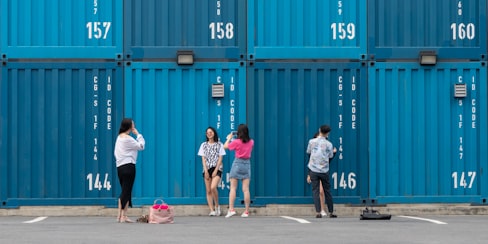
The union said on Tuesday that the crew members have been held for seven months without trial after their arrest in Iskenderun following the discovery of cocaine in a container on the 3,430-teu MSC Capucine R (built 2001).
“We want our seafarers home,” said Oleg Grygoriuk, chairman of the ITF-affiliated Marine Transport Workers’ Trade Union of Ukraine.
“No seafarer should be criminalised just for doing our job. No seafarer should be put in the position when they cannot say for sure to their families when they will be home next. The uncertainty this situation brings is as much a sentence for the families as it is for the seafarers.”
The unnamed seafarers were arrested last July on drug smuggling charges. The remaining crew members were interviewed as witnesses in the investigation, according to a report in the Kyiv Post.
The ITF said it was highly unlikely that the four — the captain and three others — knew the drugs were on board as the Turkish officials broke the customs seal to find the cocaine.
The union said it is standard practice for the containers to be sealed before loading to prevent tampering, leaving the crew in most cases with no knowledge of what is in the boxes.
ITF Seafarers’ Section chair David Heindel said seafarers around the world are increasingly being held responsible for things such as smuggling by local authorities, which appear to prefer punishing them than pursuing the groups behind the trafficking. Reference
5 Maritime Shipping Trends That Are the Wave of the Future
09 Feb 2022
There was a time when Vikings relied on sunstones. Even in more recent years, sea captains have relied on celestial navigation during trade expeditions.
Ferdinand Magellan, Blackbeard, and even Aristotle Onassis would be astounded by how technology is changing the shipping industry today.
We’re casting our eyes on some of the biggest trends in maritime shipping right now.
1. Autonomous Ships
As early as 2016, maritime systems provider Kongsberg was a stakeholder in the first official autonomous vehicles testbed. It developed control systems that are self-driving for Maritime Autonomous Surface Ships (MASS).
Today, there are more than 1,000 MASS operated by 53 organizations.
The Autonomous Ship Technology Symposium 2021 suggests we’ve already entered the era of unmanned ships. Autonomous shipping is steering toward the commercial sector. However, a retired captain tells Thomas that he doesn’t expect autonomous ships to become more prevalent than manned ships.
2. IIOT
While the Industrial Internet of Things (IIOT) is often associated with factories, it also will play a growing role in maritime shipping. Expected to reach $216 billion by 2025, IIOT uses smart sensors and other technology to augment industrial processes.
When it comes to the maritime section, these sensors offer data on wind speed, shaft torque and RPM, emission, and positioning. IIOT is critical for real-time analytics. It can help ships connect with port operators, support centers, fleet partners, and maintenance service providers.
3. Blockchain
Unfortunately, forged documents plague the shipping industry. In December 2021, for example, the Directorate of Revenue Intelligence (DRI) and the Customs department detained three cargo vessels for reportedly forging documents.
Blockchain is being looked at as a solution. Its advantage is that it is a secured digital database that is distributed through the computer network; no one person can tamper with it.
The first marine insurance blockchain platform has also arrived. Guardtime and EY have announced the platform, which is built upon Microsoft Azure global cloud technology.
4. Port Automation
There were about 100 container ships backlogged in Southern California in mid-January alone, due to COVID-19 disrupting supply chains. The use of automation in ports is critical to easing port congestion.
The obvious advantage of automation is increased efficiency. A 2015 study found that the Rotterdam port, where most of the processing of TEUs by gantry cranes was automated, was 80% more productive than the Oakland port, which was not automated.
In May 2021, the Ports of Los Angeles-Long Beach complex announced a fourth automated terminal. Virginia and New Jersey are home to at least three semiautomated terminals. Smart ports are likely to become more common across the U.S.
5. Digital Twins
The trillion-dollar infrastructure plan that was signed into law in November 2021 allocates $17 billion of that for improvements to coastal and inland ports, waterways, as well as ports of entry at the U.S. border. Ports themselves are expected to receive $5 billion in direct funding.
Ports can apply for additional funds for projects from a separate supply of $27.1 billion.
Digital twins can accelerate infrastructure planning. By creating a virtual representation of a port complex, the technology can test a structure’s functionality and provide intelligent forecasts related to operations. This includes predicting arrival times and peaks, which is key to managing busy ports. Reference
Marathon swimmer to swim Newcastle to Sydney to support seafarers
08 Feb 2022
MARATHON swimmer Dean Summers is preparing to embark on Australia’s longest ocean swim to raise awareness and funds for the global seafaring workforce.

Formerly an official of the Seamen’s Union of Australia (now Maritime Union of Australia), Mr Summers later became Australia’s International Transport Workers’ Union national co-ordinator.
Now retired from these roles, Mr Summers has completed several major ocean swims around the world and is now bringing attention to the Australian coastline.
Mr Summers will next month undertake the sixty-mile swim from Newcastle to Sydney, a route which holds significance for Australia’s maritime history.
Known as the sixty-miler, the name of the course refers to the ships trading coal between Newcastle and Sydney around 120 years ago on the same route.
The swimming route has never been successfully completed, and Mr Summers hopes to use this milestone to highlight the challenges faced by seafarers.
“I just want to remind people that the workforce that has probably been hurt the most [by COVID] are the world’s 1.3 million merchant seafarers, some of whom haven’t been home for two years because of COVID restrictions,” Mr Summers said.
“They’ve done it really tough, kept the world economy afloat, and nobody really appreciates that essential part of the logistics chain.
“I just want to draw attention to that and get everyone’s imagination running around the sixty-miler swim.”
Mr Summers said the challenges of swimming in extreme ocean conditions can align with those experienced by the global seafaring community every day.
He noted his support base comprises maritime industry players as well as the global swimming community, so the undertaking will serve as an opportunity to send the message to a wider audience.
Funds raised from Mr Summers’ upcoming swim will be donated to welfare provider Hunterlink, to ensure every cent raised is put toward supporting seafarers’ mental health.
“Hunterlink is a unique organisation. It offers a service to all seafarers around the world in their own languages to give them mental support.” Reference
Crisis Grants To Provide Emergency Care For Thousands Of Seafarers
08 Feb 2022
Maritime welfare charity Sailors’ Society is set to provide emergency care to thousands of seafarers and their families, thanks to grants from The Seafarers’ Charity and The TK Foundation.

The grants will support Sailors’ Society’s Crisis Response Network, a free service supporting seafarers and their families following a traumatic incident such as abandonment, piracy, an accident or natural disaster.
The global service, operated by 37 trained crisis responders, has been running for six years and handles two cases on average every week. Piracy is the leading issue the Crisis Response Network team has dealt with for the last two years.
Sailors’ Society’s CEO Sara Baade said: “Sailors’ Society’s crisis response team is specially trained to help seafarers and their families physically and mentally recover following a traumatic incident, supporting thousands through difficult times every year. We offer front-line trauma care, providing for basic physical and psychological needs, recovery and rehabilitation – and ultimately we help survivors to reintegrate into their communities and back into their jobs.
“Importantly, it is not only seafarers who benefit from the Crisis Response Network, but their families and seafaring communities. We have seen this with the support we provide following a natural disaster like the recent Typhoon Odette or the humanitarian crisis emerging from the COVID-19 pandemic. We’re extremely grateful to The Seafarers’ Charity and The TK Foundation for their generous support, enabling this vital service to continue for seafarers in times of greatest need.”
The network is managed through regional hubs and provides support 24-7 in a range of languages.
To contact the Crisis Response Network call +1-938-222-8181, instant chat via https://sailors-society.org/helpline, or email crisis@sailors-society.org
Reference
Maersk installs automated weather stations on 50 vessels
08 Feb 2022
Danish carrier A.P.Moller-Maersk has, in collaboration with the National Meteorological Service of Germany, Deutscher Wetterdienst (DWD), installed automated weather stations (AWS) on 50 vessels.
While crossing the largest oceans, the vessels can transmit live data helping forecast weather and climate, according to an official statement from Maersk.
“All collected data is transmitted live to the National Meteorological Service of Germany, DWD, supporting their weather forecasts and climate science.”
Maersk and DWD have collaborated on the project since 2019 with the German service providing the 50 systems being installed on the vessels.
“There is no doubt that climate change is one of the biggest challenges facing the global community and it impacts our business as well as the societies and customers we serve and partner with to enable trade,” says Aslak Ross, Head of Marine Standards, Maersk. “We have an ambitious strategy for our business to achieve net zero greenhouse gas emissions in 2040, and we are proud to have our vessels and crews help researchers in gaining a better understanding of this key global challenge and the impact it has on our surroundings.”
Maersk vessels have also been operating within the global Voluntary Observing Ship (VOS) Scheme under the Global Ocean Observing System (GOOS) providing regular weather observations but it has been done manually resulting in a slow process of data sharing.
“By implementing AWS, the vessels can deliver precise high-quality and standardized data in real-time giving DWD useful insights about the current meteorological situation at sea. The data provided is shared globally with all members of the World Meteorological Organization (WMO),” the statement added.
Approximately 300 fully-owned Maersk vessels are gathering and sharing weather and sea-state observations with the VOS. Reference
Has shipping become complacent when it comes to safety?
07 Feb 2022
Maritime safety has plateaued. The overall number of incidents and fatalities has stagnated, with little improvement in recent years. So while we can argue that safety standards have never been better, we should also point that there is still a lot of room for improvement. This week’s podcast explores what it is going to take to continue improving safety standards and asks whether we have a Covid-fuelled safety disaster waiting in the wings.
SO far this week Lloyd’s List has covered an exploding FPSO where 10 crew are missing presumed dead; we’ve seen a 20,000 teu Maersk giant run aground off Bremerhaven; and we all watched the seriously impressive skills of the helicopter pilots lifting 18 crew off a bulk carrier in high winds following a collision with a chemical tanker.
Connoisseurs of the Lloyd’s List Intelligence casualty feed will no doubt have also clocked a couple of capsizings, a minor oil spill, multiple losses from the fishing fleet and a depressing litany of ships that went bump in the night.
So when we tell you that ship casualties and incidents are at an all-time low we think it’s important to add a little context with this week’s edition of the Lloyd’s List Podcast.
Maritime safety is in a significantly better place than it was, but this week’s edition argues that we should not be lured into complacency by the apparent improvements in safety statistics.
The headline numbers are there for all to see, but the overall number of such incidents has stagnated a level that is still too high, and we have seen a stubborn spate of casualties resisting regulatory efforts to improve the situation over recent years.
In addition, the suicide rate amongst seafarers was already unacceptable and has recently increased further.
Joining the podcast this week: Grahaeme Henderson from Together in Safety coalition, Katy Ware from the UK MCA and Phillip Belcher from Intertanko.
Click Here to Listen to Podcast.. Reference
Enforcement of safety standards tapped as solution to oil vessel explosion
07 Feb 2022
ENFORCEMENT of safer operational standards has been identified as a key way of averting oil vessel explosions in Nigeria.

Following the recent explosion of an oil vessel in Nigeria’s Niger Delta, informed analysts say the situation is not unconnected with poor operational safety standards of the vessels.
The vessel is an FSPO, a floating production storage and offloading unit, owned by Shebah Exploration and Production Company Ltd. (Sepcol)
These ships are used by the offshore oil and gas industry for the production, processing and storage of oil and serve a similar function to larger oil rigs.
With the explosion of the oil production vessel, industry analysts have called to question the level of compliance and enforcement of safety standards in vessels.
“This is where enforcement of safety operational standards come in and they are key in averting this kind of loss, You could see the loss,” Former Chairman of the Society of Petroleum Engineers (SPE) Joe Nwakwue told The ICIR.
He stressed the importance of safety enforcements on the operations of oil and gas infrastructure.
Former Group Executive Director for Refineries and Petrol Chemicals at NNPC Afolabi Oladele, speaking on the development with Arise TV, expressed worry on how Nigeria dealt with infrastructure decay in vessels.
“A 46-year-old vessel that is not subject to constant check could face lots of risks,” he emphasised.
Meanwhile, the management of Shebah Exploration & Production Company Ltd (SEPCOL) has announced the rescue of three out of the 10 crew members on board offshore facility, FPSO Trinity Spirit, when it was engulfed in fire in the early hours of Wednesday following an explosion.
“A Joint Investigation Visit (JIV) with the relevant authorities, stakeholders, and expert organisations took place on Saturday, 5th February 2022.
“The focus of our joint efforts is to prioritise investigations towards establishing the whereabouts, safety, and security of the 7 (seven) crew members still missing, clean up and limit damage to the environment, and establish the cause of the explosion.” Reference
Note: All above news items compiled in this digest should be considered as news in brief. For detailed news, please refer to reference link, mentioned with each item.
Share it now

